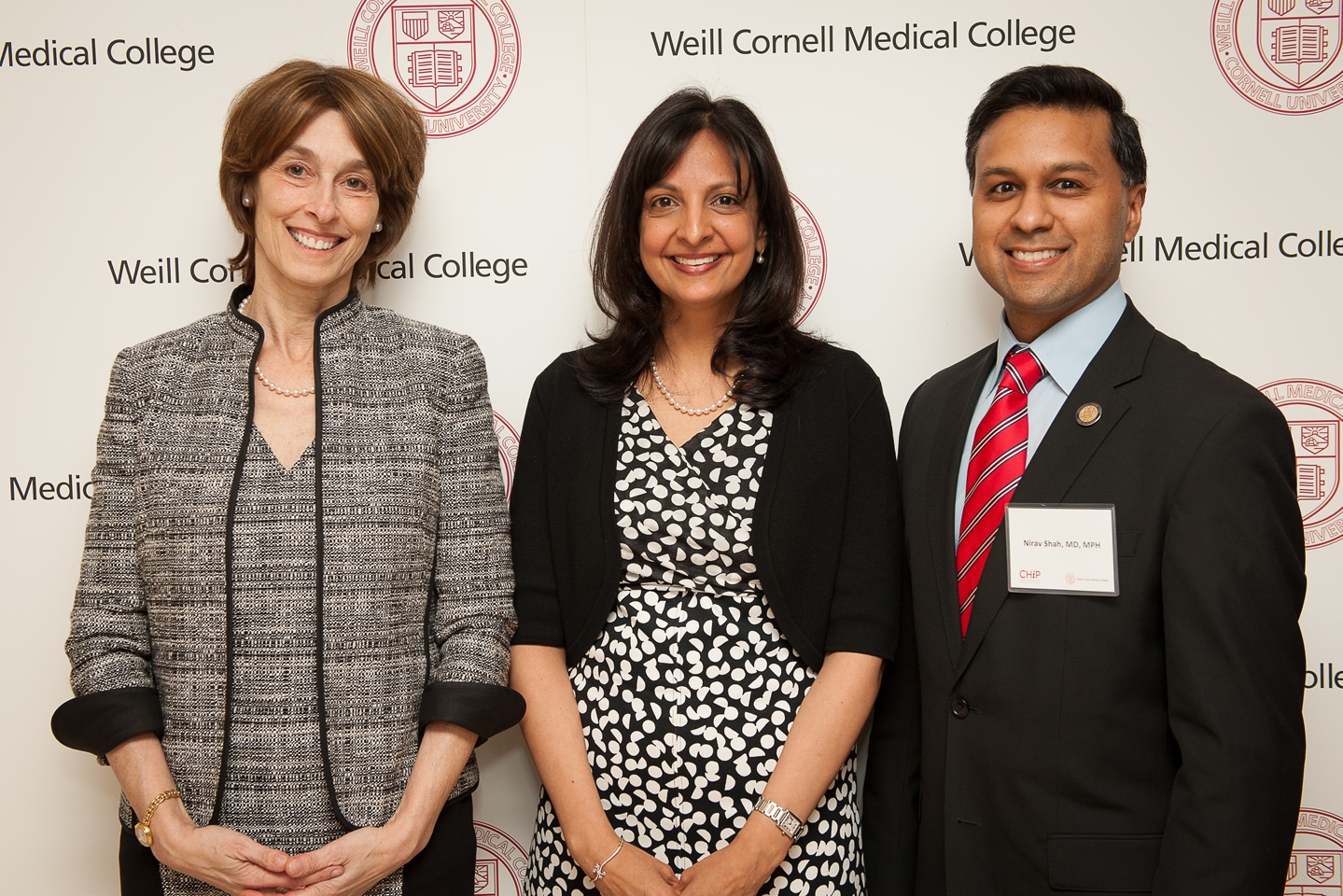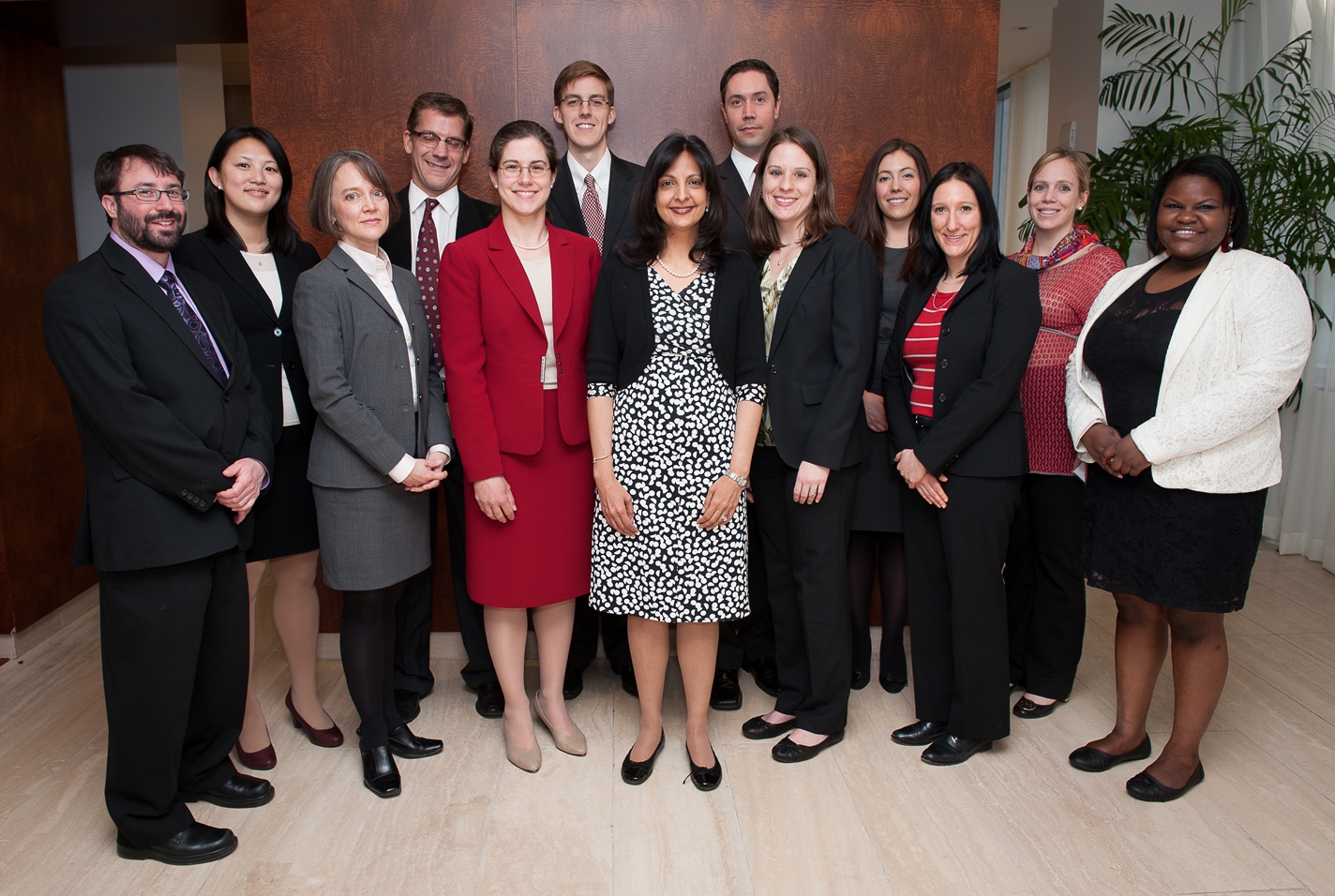Newly Established Center for Healthcare Informatics and Policy Will Pioneer Solutions to Greatest Healthcare Challenges
If there's one thing clear about our healthcare system, say industry leaders, it's that it doesn't work.
"The healthcare system has significant opportunities for improvement in the United States," said Dr. Rainu Kaushal, the Frances and John L. Loeb Professor of Medical Informatics and chief of the Division of Quality and Medical Informatics at Weill Cornell Medical College. "We're spending too much money, and for those expenditures the quality isn't where we want it to be."
But perhaps not for long. A new Center established at Weill Cornell and directed by Dr. Kaushal, who is also the executive director of the Health Information Technology Evaluation Collaborative for New York State, has the promise to transform the healthcare system for the 21st century.

Dr. Laurie H. Glimcher, the Stephen and Suzanne Weiss Dean of Weill Cornell Medical College, left, Dr. Rainu Kaushal, executive director of the Center for Healthcare Informatics and Policy and New York Commissioner of Health Dr. Nirav R. Shah at an event launching the Center for Healthcare Informatics and Policy at Weill Cornell. The Center fosters collaboration among a team of faculty from multiple departments to address issues at the intersection of healthcare informatics and healthcare policy. Photo credit: Amelia Panico
On March 30, Weill Cornell launched the Center for Healthcare Informatics and Policy (CHiP). The new Center will foster collaboration among a multi-disciplinary team of faculty from various Medical College departments including but not limited to— pediatrics, public health, medicine, radiology, pathology and urology — to address the major issues at the intersection of healthcare informatics and healthcare policy. CHiP's mission is to improve health and healthcare through the use of informatics and technology. CHiP members will evaluate the most effective ways to organize, manage, finance and deliver healthcare with informatics and technology through research, education, service, and innovation.
"This is an incredible opportunity," said Dr. Nirav R. Shah, the New York State Commissioner of Health and keynote speaker at the Center's official launch. "You've taken the bull by the horns and you couldn't be more timely in creating a resource not just for New York, but also for the entire country."
Faculty in CHiP research the effectiveness, comparative effectiveness and cost-effectiveness of a variety of healthcare interventions, ranging from electronic tools to improve medical decision making to payment reform activities. In addition, CHiP is committed to graduate education, offering both a research fellowship and a graduate certificate program in health information technology. Finally, CHiP is engaged in innovation and service activities, particularly with the CornellNYC Tech Campus.
"The need for solutions couldn't be more evident," said Dr. Shah. "In 2009, the United States spent $2.5 trillion on healthcare but of those expenditures, 20 percent to 30 percent — or $765 billion — went to waste."
In addition, New York spends more than $50 billion on Medicaid — making the state the second in the nation in Medicaid spending — and yet the state had the highest avoidable hospitalization rate in the United States.
"At Weill Cornell, we have to be committed as physician-scientists and scientists to delve into the problems caused by the current healthcare environment," said Dr. Laurie H. Glimcher, the Stephen and Suzanne Weiss Dean of Weill Cornell Medical College, during the Center's launch event. "I think it's incumbent upon us to be the leaders and managers in the discussion of healthcare. We need to be the pioneer in finding solutions to these issues. With the opening of the Center for Healthcare Informatics and Policy, Weill Cornell is one step closer to that goal."

